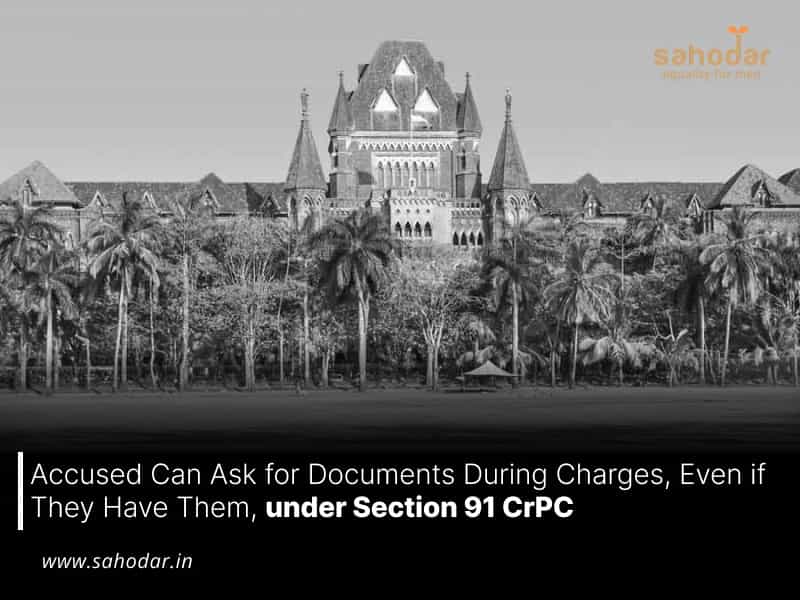The Bombay High Court has confirmed that, according to Section 91 of the Code of Criminal Procedure (CrPC), an accused person, when charges are being framed, can ask for documents previously given to the Investigating Officer (IO), even if they already have copies.
Justice Bharati Dangre disagreed with a sessions court decision that denied the accused’s request to make the IO produce documents. The session court argued that there was no need since the accused already had the documents. The High Court explained that papers submitted through the IO during the investigation are more significant when framing charges.
This case involved a petition by Dr. Sublendu Prakash Diwakar, trying to overturn a decision dismissing his request under Section 91 of the CrPC. The petitioner, facing a rape charge, claimed crucial documents supporting his innocence were left out and sought their production.
The court acknowledged the possibility of substantial evidence and referred to past cases, allowing the consideration of defense material during framing of charges in particular situations. It also mentioned the Draft Criminal Rules and Practice 2021, highlighting the accused’s right to request documents under Section 91.
Even though a Supreme Court judgment suggested Section 91 can’t be used at the framing of charges stage, the court relied on other judgments and the draft rules. It said that, even if initially given by the accused, the documents are now considered in the IO’s custody, and their production is necessary for the accused to prove innocence.
The court overturned the previous order and directed the Additional Sessions Judge to ensure the production of requested documents during the framing of charges. It stressed the importance of fairness in the trial. Until the documents are produced, proceedings against the petitioner in the case will be on hold.
Advocates Siddhesh Bhole, Yakshay Chheda, and Gautam Khazanchi represented the petitioner, and APP SR Agarkar represented the State in Criminal Writ Petition (St) No. 17507 of 2023,
titled Dr. Sublendu Prakash Diwakar v. State of Maharashtra.

